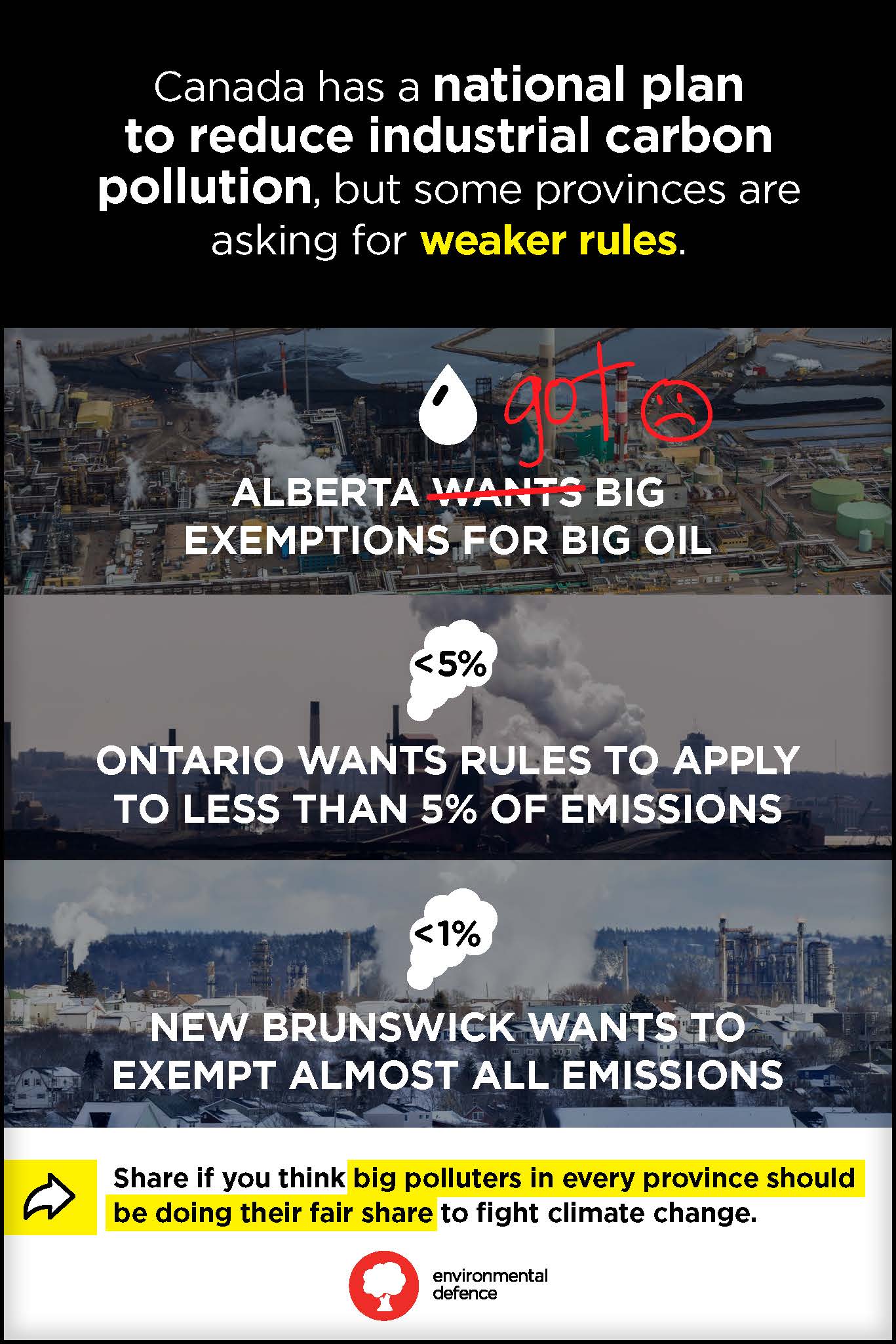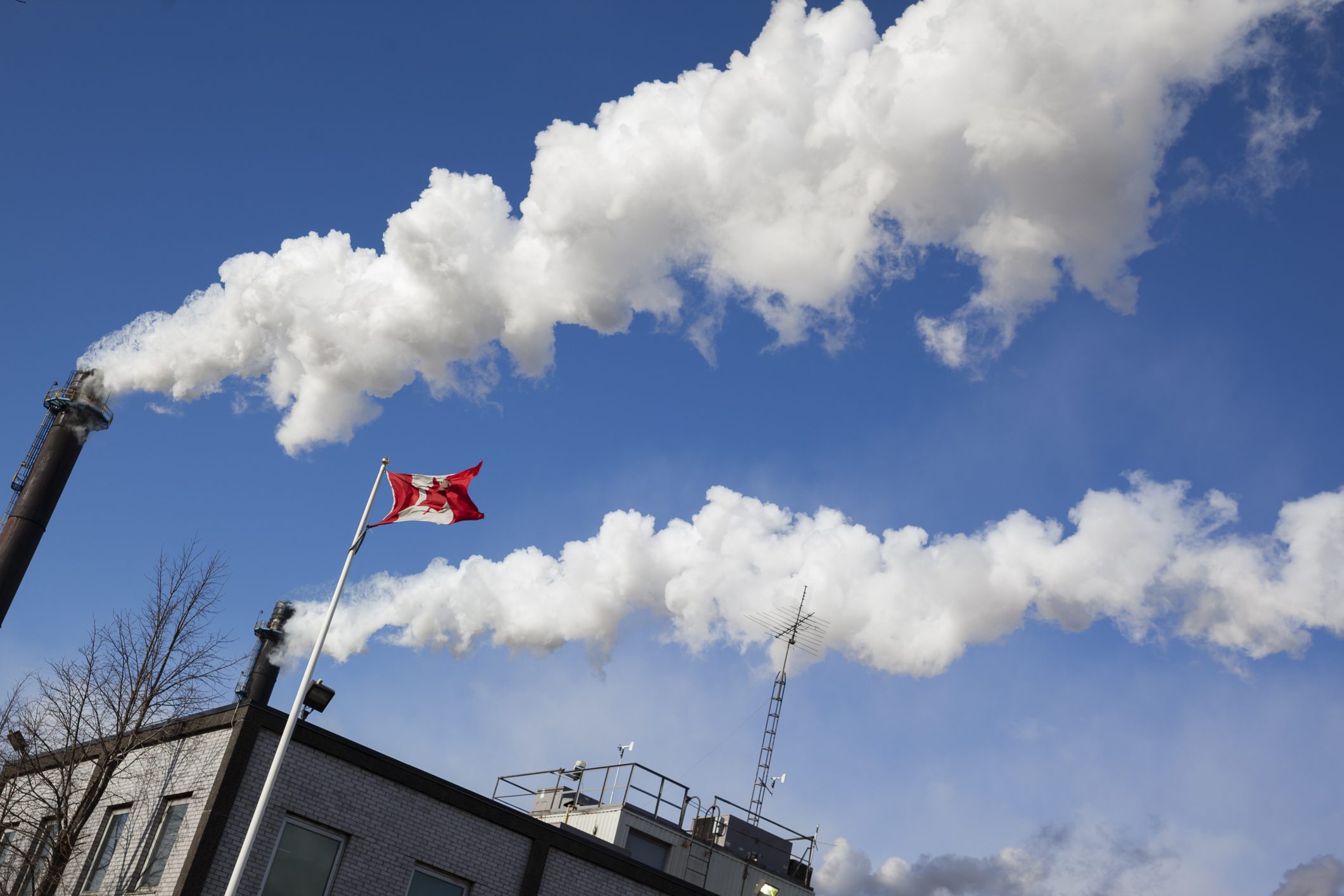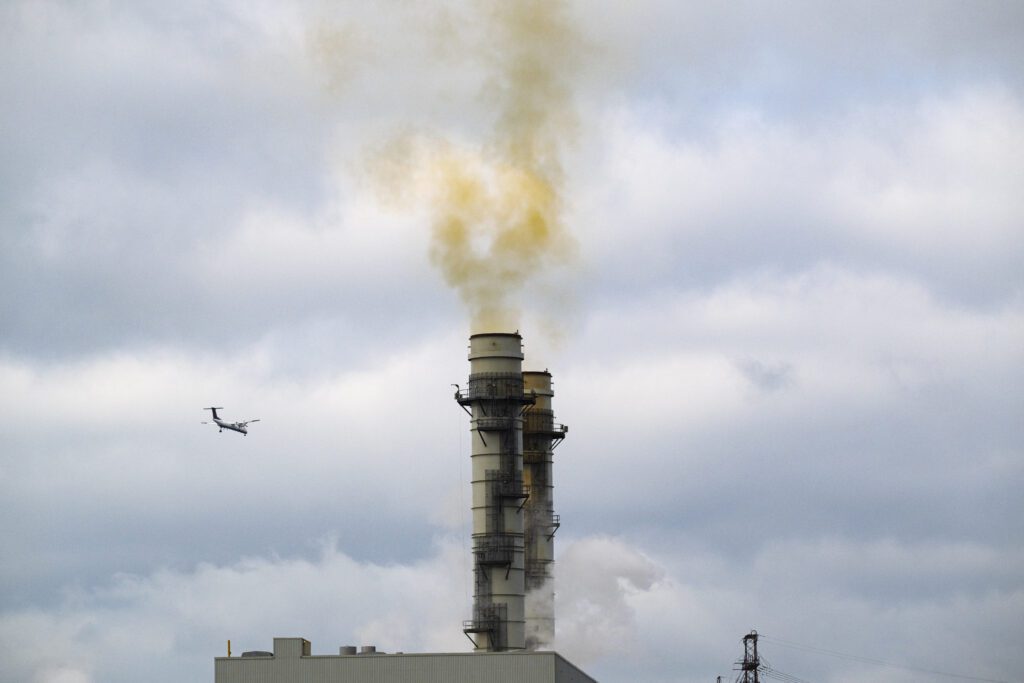Big industrial polluters create a huge amount of Canada’s carbon emissions. The oil and gas industry alone is the single biggest source of polluting emissions in Canada. There’s no way around it – cutting Canada’s carbon emissions must include effective government action to make polluters pay, and hold them accountable.
But the federal government is now considering proposals from Ontario and New Brunswick to weaken rules for Canada’s biggest polluters, after just approving a new, weaker system in Alberta. Since Alberta and Ontario are the provinces with the two highest emissions in Canada, this is no small potatoes. Approving weaker rules in more provinces is unfair to provinces pulling their weight, and is incompatible with Canada’s commitment to stronger climate action.
 The federal government’s carbon pricing system for big industrial polluters now applies in any province that doesn’t have its own system, or doesn’t have one strong enough to pass muster. It’s a similar idea to the carbon price on gasoline and home heating fuels, which tends to hog the spotlight. But you don’t hear about the industrial pricing system because it’s incredibly complex, and describing it makes even the most seasoned policy nerd’s eyes glaze over.
The federal government’s carbon pricing system for big industrial polluters now applies in any province that doesn’t have its own system, or doesn’t have one strong enough to pass muster. It’s a similar idea to the carbon price on gasoline and home heating fuels, which tends to hog the spotlight. But you don’t hear about the industrial pricing system because it’s incredibly complex, and describing it makes even the most seasoned policy nerd’s eyes glaze over.
What you need to know is that the system makes big polluters pay based on how much they pollute, so there’s always an incentive to cut costs by polluting less. But there are larger exemptions for polluters who are more likely to pick up and move to cheaper areas where they can pollute for free, or those who make products like steel or cement, where it’s harder to reduce greenhouse gas emissions.
Ontario and New Brunswick have both proposed systems that are more lenient than the federal system that already applies to industrial polluters in their provinces. In fact, they are so lenient that they would exempt almost all industrial carbon emissions from their proposed carbon price. If the federal government approves these systems, greenhouse gas emissions will be higher in these provinces.
Take Ontario, for example. The recent scathing report from Ontario’s Auditor General found that Ontario’s system achieves only about one third of the emissions reductions it was supposed to deliver. That means Ontario’s industries are not doing their fair share, and Canada will have an even tougher time closing the gap to meet existing climate goals, let alone more ambitious ones they recently committed to.
The consequences of the decision on Ontario’s system are huge. Ontario is already one of the highest greenhouse gas emitting provinces in Canada, and approving Premier Ford’s weak system would make things worse. It’s also not fair to other provinces that have stepped up with stronger plans and are doing more to cut carbon pollution.
It’s one thing to allow provinces to develop their own systems based on their own unique set of economic circumstances. But allowing a patchwork of weaker systems across Canada is quite another. That’s not what fair looks like. Fair means setting a level playing field so that all polluters take real climate action.
It’s time for the federal government to stand firm on pricing big polluters and reject systems that don’t measure up. Canadians voted for an ambitious climate plan to hold polluters accountable for the emissions they produce, not for watered-down substitutes.








